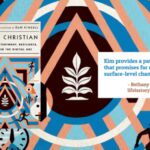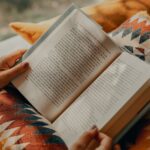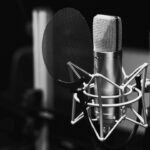Part of the series “My Year In…”
Memoirs
1. A Moveable Feast (Ernest Hemingway)
I picked up A Moveable Feast because a) I wanted to brag that I read Hemingway, and b) it is very, very short. I’ve only read two other Hemingway novels. One was simple, epic and utterly brilliant. The other I threw at a wall.
A Moveable Feast is a collection of Hemingway’s reflections of writing in Paris. The rise of digital technology means some things have changed since it was published in 1964, but some things have stayed the same. People put Hemingway on a pedestal, so it was strangely refreshing to read about his gambling schemes distracting him from writing or that he ran out of money when he had writer’s block. The stories run the gamut from bleak, hilarious and sad.
2. I’m Sorry I’m Late, I Didn’t Want to Come (Jessica Pan)
Pan makes me snort through my nose with laughter. The first chapter describing her rock-bottom moment is worth the price of the book alone. Her memoir explores making friends as an adult, the difference between introversion and depression, and how it is worth taking risks for deep connection with others.
Novels
3. Blackwood Trilogy (Khaiah Thomson)
I’ve had a long string of disappointments with YA novels, which are increasingly heavy on sexual content and progressive agendas. The Blackwood Trilogy was exactly what I needed when a friend pressed the first one into my hand.
West Australian author Khaiah Thomson employs bad guys, bloodshed and sarcasm while exploring healthy relationships, forgiveness, redemption, and the struggle between good and evil. Thomson is a Christian, but her books are written for a general audience. Hope shines through.
Craft
4. Adorning the Dark (Andrew Peterson)
No one asked me, “What was your favourite craft book this year?” But when they do, I’m ready. Peterson is a Christian writer, songwriter and musician who helped establish The Rabbit Room in Nashville. I learned much from his insights into the creative life and the benefits of community as an artist and a Christian.
5. On Writing Well (William Zinsser)
I did not expect a book about writing to be sharp and witty. Zinsser is firmly in the “the road to hell is paved with adverbs” camp and wants to cull every unnecessary word and idea. I think about this book every time I write.
Christian
6. You’re Only Human (Kelly M. Kapic)
My friend described my year as “juggling elephants and cars rather than balls.” If you have the same temptation to attempt more than humanly possible, I commend You’re Only Human.
Kapic explores how Christians often confuse our creaturely limits with sin. He argues that growing in understanding our finitude—with healthy dependence and limits—fosters our freedom, joy, growth, and community. I suspect I will need to read this book again and again and again.
Non-Fiction
7. The Anxious Generation (Jonathan Haidt)
Haidt explores the precipitating and perpetuating factors of the youth mental health crisis across 37 countries. He attributes the crisis to young people being overprotected in real life and under-protected online, providing substantial evidence missing in similar books.
Although he is not a Christian, Haidt’s family, school, and community level solutions feel like a breath of fresh air. I wish I could discuss his ideas in a book club with my local community.














